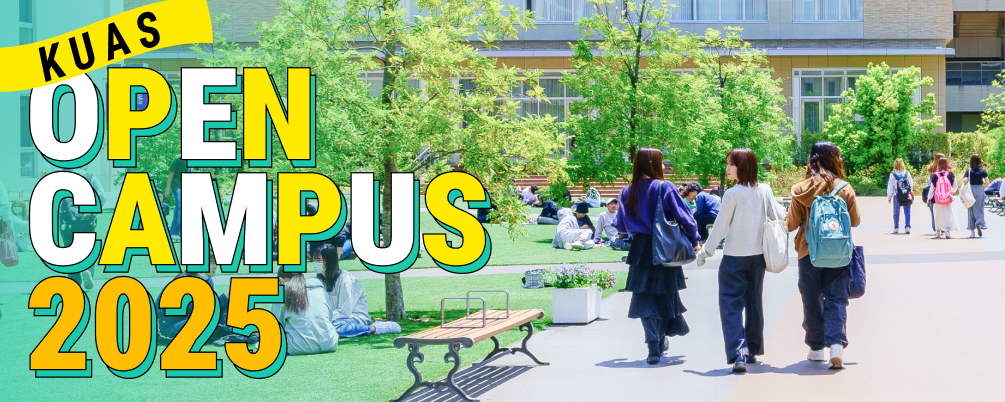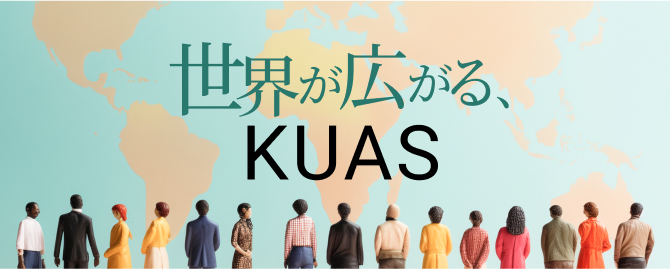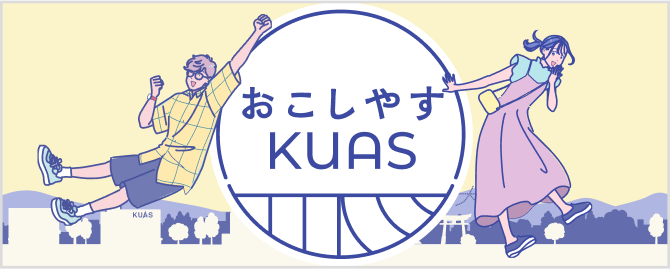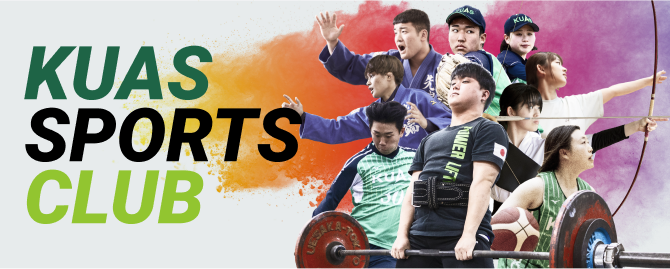資料をさがす
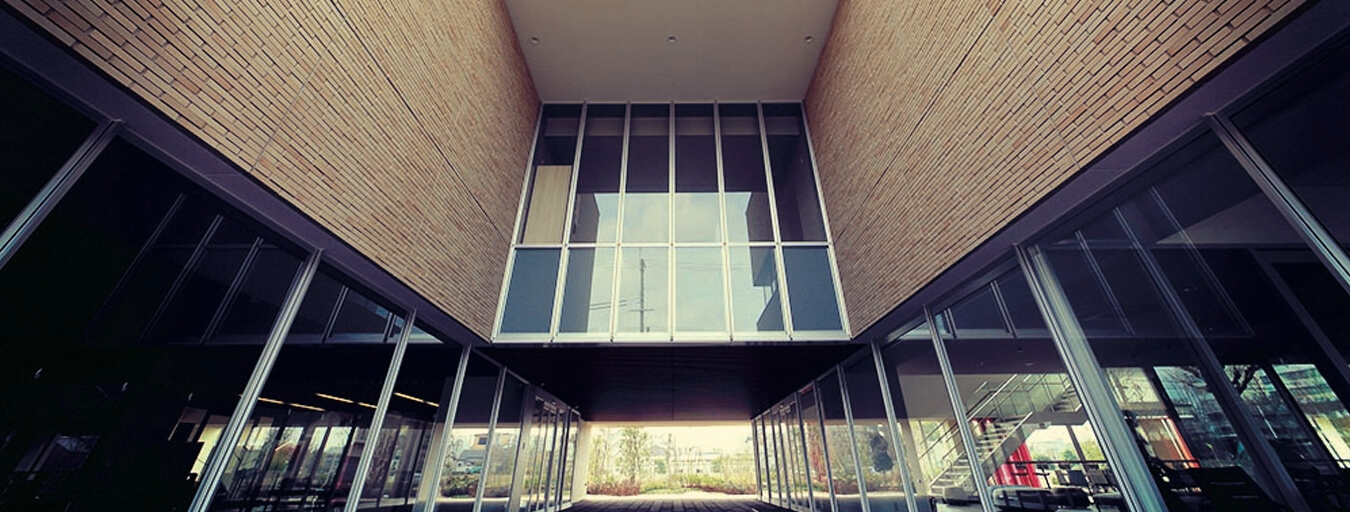
電子ジャーナル
京都先端科学大学で利用可能な電子ジャーナル一覧
洋雑誌一覧 A – Z
亀岡
亀岡キャンパスでのみ利用可能
太秦
太秦キャンパスでのみ利用可能
下記の一覧から閲覧できるフルテキストは出版社が提供する範囲です。
一覧に含まれていないタイトル・範囲でも電子ジャーナルデータベースから閲覧可能な場合があります。合わせてご利用ください。詳細は図書館カウンターまでお問い合わせください。
A
ACS Food Science & Technology NEW
American Economic Journal: Applied Economics※
American Economic Journal: Economic Policy※
American Economic Journal: Macroeconomics※
American Economic Journal: Papers and Proceedings(VOLUME108~)
American Economic Journal: Microeconomics※
American economic review(VOLUME89~)※
American economic review:Insights※
※上記リンクの他、EBSCOEconLit内でも閲覧いただけます。EBSCOでご利用の際は、EconLitログイン後、画面左上の【全文出版物】から該当雑誌のタイトルを検索して、閲覧をお願いいたします。
American Journal of International Law(Vol:111~)
American Journal of Speech-Language Pathology
B
C
E
G
I
J
Journal of Agricultural and Food Chemistry
Journal of the American Chemical Society
Journal of Applied Econometrics
Journal of accounting research(Vol.58まで)
The journal of biological chemistry(OpenAccess)
Journal of communication disorders
Journal of economic literature(VOLUME37~) ※
※上記リンクの他、EBSCOEconLit内でも閲覧いただけます。EBSCOでご利用の際は、EconLitログイン後、画面左上の【全文出版物】から該当雑誌のタイトルを検索して、閲覧をお願いいたします。また、VOLUME7からVOLUME36までの号はEBSCOEconLitからご利用ください。
Journal of economic perspectives※
※上記リンクの他、EBSCOEconLit内でも閲覧いただけます。EBSCOでご利用の際は、EconLitログイン後、画面左上の【全文出版物】から該当雑誌のタイトルを検索して、閲覧をお願いいたします。
Journal of Food Science Education
Journal of money, credit and banking
Journal of speech, language & hearing reserch
Journal of Sports Medicine and Physical Fitness※2
※2 フルテキストの閲覧にはID/パスワードの入力が必要な場合があります。閲覧希望の方は図書館カウンターまでお越しください。
M
N
P
S
U
和雑誌一覧
雑誌によってフルテキストの閲覧可能範囲が異なります。詳細は図書館本館までお問い合わせください。
Brain and Nerve 脳と神経
| ISSN | 0006-8969 |
| 出版社/発行機関 | 医学書院 |
| 主題 | 脳・神経の研究 |
BRAIN and NERVE-神経研究の進歩
| ISSN | 1881-6096 |
| 出版社/発行機関 | 医学書院 |
| 主題 | 脳・神経の研究 |
medicina
| ISSN | 0025-7699 |
| 出版社/発行機関 | 医学書院 |
| 主題 | 臨床医学 |
言語聴覚研究
| ISSN | 1349-5828 |
| 出版社/発行機関 | 日本言語聴覚士協会/医学書院 |
| 主題 | 言語聴覚 |
公衆衛生
| ISSN | 0368-5187 |
| 出版社/発行機関 | 医学書院 |
| 主題 | 公衆衛生 |
呼吸器ジャーナル
| ISSN | 2432-3276 |
| 出版社/発行機関 | 医学書院 |
| 主題 | 呼吸機能研究、臨床医学 |
呼吸と循環
| ISSN | 0452-3458 |
| 出版社/発行機関 | 医学書院 |
| 主題 | 呼吸・循環機能研究、臨床医学 |
財政金融統計月報
| ISSN | 0912-8042 |
| 出版社/発行機関 | 財務総合政策研究所/全国官報販売協同組合 |
| 主題 | 財政、金融、経済に関する統計資料集 |
作業療法
| ISSN | 0289-4920 |
| 出版社/発行機関 | 協同医書出版社 |
| 主題 | 作業療法 |
作業療法ジャーナル
| ISSN | 0915-1354 |
| 出版社/発行機関 | 三輪書店 |
| 主題 | 作業療法 |
参考書誌研究
| ISSN | 0385-3306 |
| 出版社/発行機関 | 国立国会図書館主題情報部/日本図書館協会 |
| 主題 | 図書館業務、国立国会図書館が取り組む主題情報 |
情報管理 = Information & documentation
情報管理 = Information & documentation
| ISSN | 0021-7298 |
| 出版社/発行機関 | 独立行政法人 科学技術振興機構 |
| 主題 | 学術情報の整備・流通・活用 |
循環器ジャーナル
| ISSN | 2432-3292 |
| 出版社/発行機関 | 医学書院 |
| 主題 | 循環機能研究、臨床医学 |
神経研究の進歩
| ISSN | 0001-8724 |
| 出版社/発行機関 | 医学書院 |
| 主題 | 神経研究 |
人文地理 = Human geography
| ISSN | 0018-7216 |
| 出版社/発行機関 | 人文地理学会 |
| 主題 | 人文地理学 |
水文・水資源学会誌
| ISSN | 0916-8958 |
| 出版社/発行機関 | 水文・水資源学会 |
| 主題 | 水文学・陸水学・河川工学・海洋学 |
精神医学
| ISSN | 0488-1281 |
| 出版社/発行機関 | 医学書院 |
| 主題 | 精神医学 |
生体の科学
| ISSN | 0370-9531 |
| 出版社/発行機関 | 医学書院 |
| 主題 | 生命科学、生物科学、神経科学、分子生物学、酵素科学、栄養科学 |
総合リハビリテーション
| ISSN | 0386-9822 |
| 出版社/発行機関 | 医学書院 |
| 主題 | リハビリテーション |
日本応用動物昆虫学会誌
| ISSN | 0021-4914 |
| 出版社/発行機関 | 日本応用動物昆虫学会 |
| 主題 | 農学、医学、生態学等における昆虫および動物学分野の研究成果 |
日本がん看護学会誌
| ISSN | 0914-6423 |
| 出版社/発行機関 | 日本がん看護学会 |
| 主題 | がん看護学 |
日本看護医療学会雑誌
| ISSN | 1345-2606 |
| 出版社/発行機関 | 日本看護医療学会 |
| 主題 | 看護学 |
日本看護科学会誌
| ISSN | 0287-5330 |
| 出版社/発行機関 | 日本看護科学学会/医学書院 |
| 主題 | 看護学 |
日本看護研究学会雑誌
| ISSN | 0285-9262 |
| 出版社/発行機関 | 日本看護研究学会 |
| 主題 | 看護学 |
日本災害看護学会誌
| ISSN | 1345-0204 |
| 出版社/発行機関 | 日本災害看護学会 |
| 主題 | 災害看護学 |
日本看護診断学会誌(看護診断)
| ISSN | 1341-3007 |
| 出版社/発行機関 | 日本看護診断学会/医学書院 |
| 主題 | 看護学 |
日本看護倫理学会誌
| ISSN | 1883-244X |
| 出版社/発行機関 | 日本看護倫理学会/医学書院 |
| 主題 | 看護学 |
日本腎不全看護学会誌
| ISSN | 1344-7327 |
| 出版社/発行機関 | 日本腎不全看護学会/医学書院 |
| 主題 | 看護学 |
日本森林学会誌
| ISSN | 1349-8509 |
| 出版社/発行機関 | 日本森林学会 |
| 主題 | 林業・森林工学 |
日本糖尿病教育・看護学会誌
| ISSN | 1342-8497 |
| 出版社/発行機関 | 日本糖尿病教育・看護学会/医学書院 |
| 主題 | 看護学 |
水環境学会誌 = Journal of Japan Society on Water Environment
水環境学会誌= Journal of Japan Society on Water Environment
| ISSN | 0916-8958 |
| 出版社/発行機関 | 日本水環境学会 |
| 主題 | 水環境 |
有機合成化学協会誌
| ISSN | 0037-9980 |
| 出版社/発行機関 | 社団法人 有機合成化学協会 |
| 主題 | 有機合成化学 |
理学療法ジャーナル
| ISSN | 0915-0552 |
| 出版社/発行機関 | 医学書院 |
| 主題 | 理学療法 |
理学療法と作業療法
| ISSN | 0386-9849 |
| 出版社/発行機関 | 医学書院 |
| 主題 | 理学療法 |
陸水學雜誌
| ISSN | 0021-5104 |
| 出版社/発行機関 | 日本陸水學會 |
| 主題 | 水文学・陸水学・河川工学・海洋学 |
リハビリテーション医学
| ISSN | 1881-3526 |
| 出版社/発行機関 | 日本リハビリテーション医学会/医学書院 |
| 主題 | リハビリテーション医学 |
学内で利用できる電子ジャーナルデータベース
EBSCOhost
EBSCO社提供の外国雑誌情報検索データベース。京都先端科学大学で利用できる文献検索データベースは以下のとおり。
| Business Source Premier | 経済学・経営学の全文データベース。8800タイトルの雑誌の論文記事全文が検索可能。世界の大企業10,000社の会社情報も検索できる。 |
|---|---|
| EconLit | 経済学分野のレファレンスソースデータベース。Journal of Economic Literature(JEL)の論文記事全文が収録。 |
| Regional Business News | 地域のビジネス関連出版物を全文にて収録した総合的なデータベース。 |
| ERIC (Educational Resource Information Center) | 教育関連の文献とリソースに加え、論文情報を検索できるデータベース。 |
| Teacher Reference Center | 教師および教育関係者向け専門誌や雑誌のインデックスと抄録を検索できるデータベース。 |
| GreenFILE | 環境に対して人間が与える影響に関するあらゆる研究データのインデックスと抄録のほか、全文も検索できるデータベース。 |
| CINAHL | 看護学の文献データベース。 約3,000 誌の看護学、また健康全般に関する雑誌論文の抄録情報を収録している。 |
OECD iLibrary
OECD(経済開発協力機構)の出版物やデータにいつでもアクセスできるオンラインサービス。冊子体で出版しているものはPDFファイルで、統計データベースは独自の表を作成し、ダウンロードが可能。
Wiley Online Library
wiley社発行の雑誌が閲覧できる。
※契約タイトルはこちらをご覧ください。利用マニュアルはこちらをご覧ください。
Academic OneFile
人文社会科学から自然科学まで全分野を対象とした学術論文のフルテキストデータベースです。
※利用マニュアルはこちら
General OneFile
Academic OneFileより一般向けのフルテキストデータベースです。
電子ジャーナルの利用規定
必ずお読みください
Webページの閲覧やダウンロードやプリントアウト行為の情報は全てWeb管理者(出版社)で管理されており、規約に違反した利用者は利用が停止されてしまいます。(法人の場合は所属機関全体で利用停止)
一人が利用規約違反をすると大学全体の利用が停止します。
電子ジャーナルの利用については、出版者とのライセンス契約において、守らなければならない事項が定められています。
一般的に次の行為については厳しく禁止されています。
- 文書や画像等を自動的、または組織的にダウンロードしたりプリントアウトをすること(ダウンロード支援ソフトやファイル取得ツール等の利用)
- 一度に一冊まるまる大量のダウンロードやプリントアウトを行うこと
- 個人利用以外の目的で使うこと 営利・非営利を問わず複製・再配布すること
- 著作権を侵害すること
契約に違反する利用があった場合、京都先端科学大学全体のアクセスがすべて停止されることがあります。
これらの注意事項を守ってご利用ください。
電子書籍
- 学内のパソコンから利用できます。
- 初めての方は必ず利用規定をご覧ください。
- 利用できるのは京都先端科学大学に在籍の学生・院生、研究生、および教職員です。
- 電子書籍洋書リストはこちら(Excel)(PDF)
Maruzen eBook Library
丸善が提供する学術書籍に特化した電子書籍サービスです。
学内からご利用の方ご利用の方は下のボタンをクリックしてください。
Maruzen eBook Library
Maruzen eBook Library利用マニュアルはこちら
学外からご利用の方は下のボタンをクリックしてください。
Maruzen eBook Library【学外ログイン】
※学外からアクセスする場合は、アカウント登録が必要になります。詳しくはこちら
- 1タイトルにつき同時アクセス1のため、「閲覧待ち」のアイコンが出ている場合は時間を置いてアクセスしてください。
- トップページから閲覧する際は「購読契約しているタイトルから検索」または「購読契約タイトル一覧」をクリックしてください
- 「1回の閲覧につき、印刷/保存は一人1タイトルあたり、「印刷/保存」画面上に表示されているページ数までダウンロードできます。」
2022年4月21日より、印刷/保存機能のサービスが再開いたしました。詳細はこちらをご覧ください。 - 詳しくは利用案内のページをご覧ください。
- 電子書籍に関するお問い合わせは下記までご連絡お願いいたします。
【図書館本館:0771-29-2292】
【太秦北館図書室:075-406-9220】
【太秦南館図書室:075-496-6370】
電子書籍の利用規定
必ずお読みください
Webページの閲覧やダウンロードやプリントアウト行為の情報は全てWeb管理者(出版社)で管理されており、規約に違反した利用者は利用が停止されてしまいます。(法人の場合は所属機関全体で利用停止)
一人が利用規約違反をすると大学全体の利用が停止します。
電子書籍の利用については、出版者とのライセンス契約において、守らなければならない事項が定められています。
一般的に次の行為については厳しく禁止されています。
- 文書や画像等を自動的、または組織的にダウンロードしたりプリントアウトをすること
(ダウンロード支援ソフトやファイル取得ツール等の利用) - 一度に一冊まるまる大量のダウンロードやプリントアウトを行うこと
- 一人1タイトルあたり、「印刷/保存」画面上に表示されているページ数の上限を超えてダウンロードすること
- 個人利用以外の目的で使うこと 営利・非営利を問わず複製・再配布すること
- 著作権を侵害すること
契約に違反する利用があった場合、京都先端科学大学全体のアクセスがすべて停止されることがあります。
これらの注意事項を守ってご利用下さい。
京都先端科学大学発行の論集
京都先端科学大学学術リポジトリ
京都先端科学大学が発行する下記資料に掲載された論文・博士論文を検索できます。
- 京都先端科学大学 経済経営学部論集
(経済経営学部学会発行) - 京都学園大学経済経営学部論集
(経済経営学部学会発行) - 人間文化研究
(人間文化学部人間文化学会発行) - 京都学園大学経済学部論集
(経済学部経済学会発行) - 京都学園大学経営学部論集
(経営学部経営学会発行) - 京都学園法学
(法学部法学会発行) - 総合研究所所報
(研究・連携支援センター) - 博士論文
京都亀岡キャンパス図書館本館・分室
〒621-8555 京都府亀岡市曽我部町南条大谷1-1
TEL
0771-29-2292
京都太秦キャンパス図書室
〒615-0096 京都府京都市右京区山ノ内五反田町18番地
TEL
0771-406-9220

